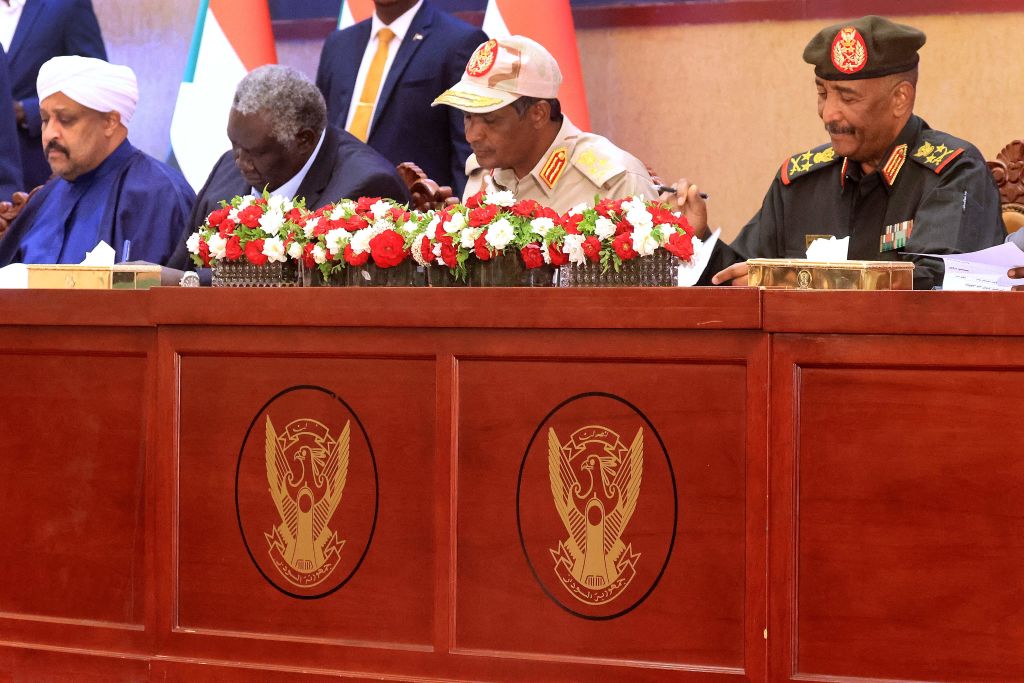ADF STAFF
Across a continent where militias pose significant dangers, the Rapid Support Forces (RSF) in Sudan stands alone among the cautionary tales.
Its leader, Mohamed Hamdan Dagalo, known as Hemedti, seized power alongside the Sudanese Armed Forces (SAF) in a 2019 coup, but their alliance collapsed in 2023, hurling the country into a devastating civil war.
Federico Manfredi Firmian, a political science lecturer at Sciences Po in Paris, has spent more than a decade researching insurgents, paramilitaries, militias and other armed groups. Some are engaged in long-term plans for state capture.
“The Rapid Support Forces followed a strategy which is similar to those of other militia groups aiming to infiltrate and co-opt state institutions,” he wrote in a July 17 article for The Conversation Africa website. “Such strategies have military, economic and political dimensions.
“These groups tend to exploit conflict to enlarge their areas of influence, weapon stockpiles and numbers of fighters.”
The RSF has roots in the notorious Arab Janjaweed militias that were accused of genocide during the Darfur conflict from 2003 to 2006. By early 2006, many Janjaweed had been absorbed into the SAF.
Hemedti formed the RSF in 2013 amid a restructuring of the Janjaweed militias. It was armed by Sudanese dictator Omar al-Bashir and tasked with combating rebel groups in Darfur and other regions.
Al-Bashir legitimized the RSF and gave Hemedti the rank of lieutenant general along with the freedom to seize gold mines in Darfur. Hemedti became one of the country’s wealthiest men. He also developed relationships with Saudi Arabia and the United Arab Emirates after he sent RSF fighters to back them against Iran-aligned Houthi rebels in Yemen’s civil war.
In Sudan, Hemedti’s RSF spread out from Darfur and took control of the border with Chad and Libya while forging close alliances with Libyan warlord Field Marshal Khalifa Haftar and Russia’s mercenary Wagner Group.
After years of supporting the government, Hemedti took part in al-Bashir’s ouster in 2019 before seizing power more directly in the military coup of 2021. He has spoken publicly about the need for “real democracy” but displays all the hallmarks of a strongman.
“Hemedti planned on becoming the number one man in Sudan,” an opposition figure who requested anonymity for safety told Reuters. “He has unlimited ambition.”
Years of instability in Sudan created the conditions for the RSF to emerge gradually before an unavoidable confrontation with the SAF.
“Militias bent on state capture initially pursue their objectives without openly antagonizing the state,” Firmian wrote. “They often position themselves as pro-government. But they also signal that any attempt by the state to neutralize them would lead to a devastating confrontation.”
By April 2023, simmering tensions between SAF leader Gen. Abdel Fattah al-Burhan and Hemedti boiled over at the prospect of 100,000 RSF fighters being absorbed into the Sudanese Army, purportedly as part of a transition to democracy.
Sudan’s civil war erupted across the country on April 15, 2023. Thousands of people have been killed, nearly 10 million have been displaced and more than 25 million face acute hunger, according to the United Nations.
One of the world’s worst crises also stands as a stark warning to other African nations dealing with militias that are growing in power.
“Militias are often taken as a sign of weak or absent government, the result of renegade actors operating in the wake of state collapse,” author Joshua Craze recently wrote for Boston Review magazine. “The reality is that many militias active around the globe today were created by states.
“The RSF has no plan for governance in Sudan. Its political strategy is simply the mirror image of its former patrons in the security services.”

